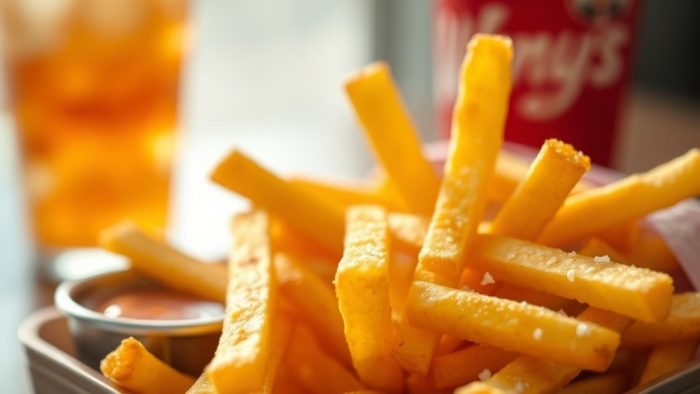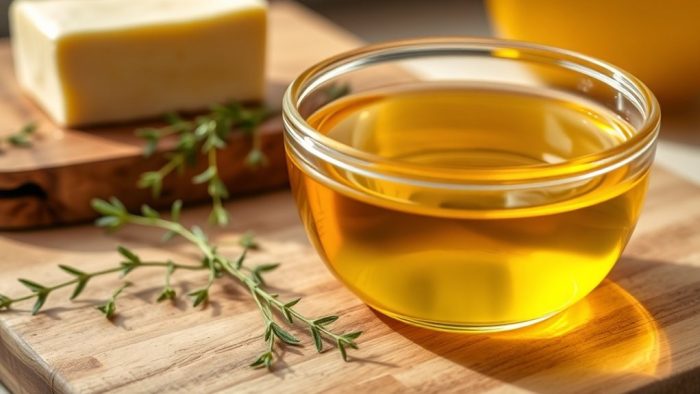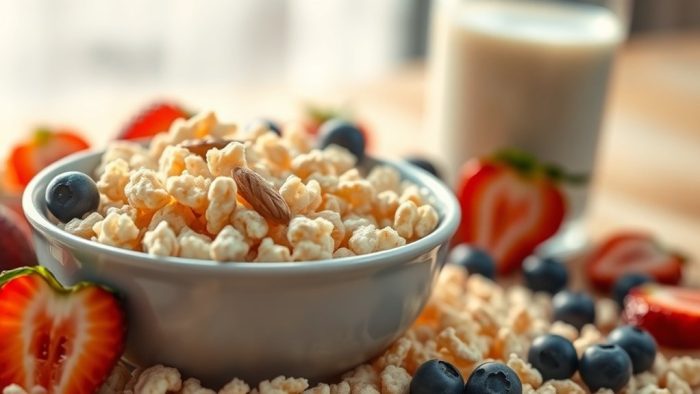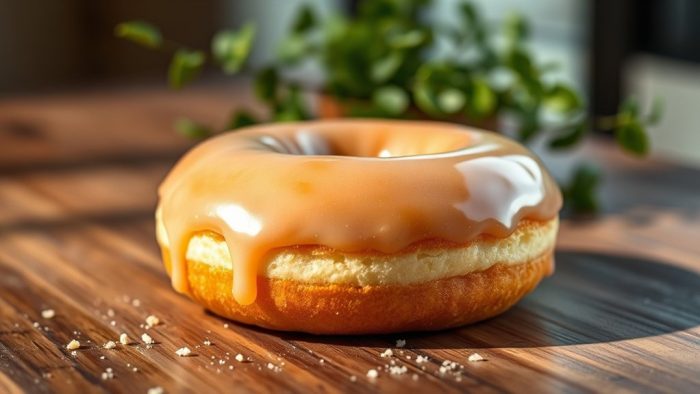Is Maple Syrup Vegan?
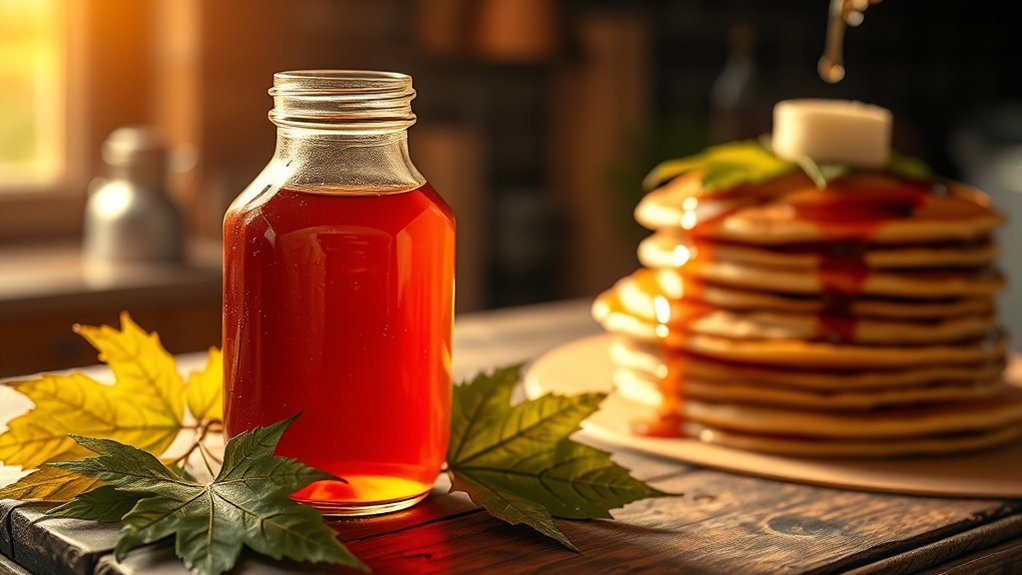
You’ll find pure maple syrup is naturally vegan since it’s made entirely from maple tree sap. However, some producers add animal-derived defoaming agents like butter or lard during boiling, which compromises its vegan status. Check for “100% pure maple syrup” labels, organic certifications, or contact manufacturers about their defoaming practices. Many organic producers use vegetable oils instead of animal products. Understanding production methods and label certifications helps you make informed choices about which brands align with your dietary values.
Understanding Pure Maple Syrup Production and Tree-Tapping Process
When you’re evaluating whether maple syrup is vegan, understanding its production process reveals that it’s derived entirely from tree sap without any animal involvement.
Tapping sugar maple trees occurs during late winter when fluctuating temperatures create ideal sap flow. You’ll find this naturally vegan sweetener requires no animal-derived processing aids or additives.
The production process involves boiling the sap in sugarhouses, where water evaporates and sugars concentrate through caramelization. This creates pure maple syrup with varying flavor profiles and potential health benefits, including minerals and antioxidants naturally present in the sap.
Climate conditions directly impact sap quality and flow rates, affecting the final product’s characteristics. Since producers simply collect and concentrate tree sap through heat application, you can confidently consider maple syrup a plant-based sweetener suitable for vegan diets.
Hidden Non-Vegan Ingredients and Defoaming Agents in Maple Syrup
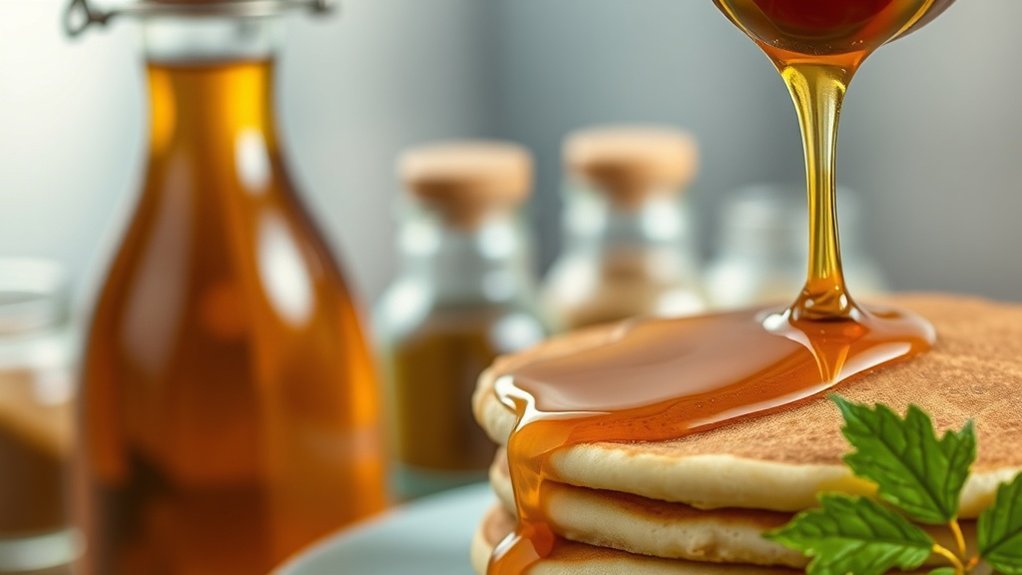
While pure maple syrup‘s production appears straightforward, the boiling process often involves defoaming agents that can compromise its vegan status.
You’ll find many producers use animal-derived defoamers that aren’t disclosed on ingredient lists, creating uncertainty about the product’s contents.
Common non-vegan additives include:
- Lard – Traditional animal fat defoamer used during boiling
- Dairy cream – Another animal-based foam suppressant
- Butter flavoring – Added to some commercial varieties
- Honey – Sometimes blended for flavor improvement
If you’re seeking vegan options, choose organic maple syrup producers who typically use vegetable oils as defoamers.
Look for certified vegan labels or MOFGA organic certification, which indicates plant-based processing methods.
You should scrutinize ingredient lists carefully, though some animal products mightn’t appear on labels.
When in doubt, contact manufacturers directly about their defoaming practices.
How to Identify Vegan-Certified Maple Syrup Brands and Labels
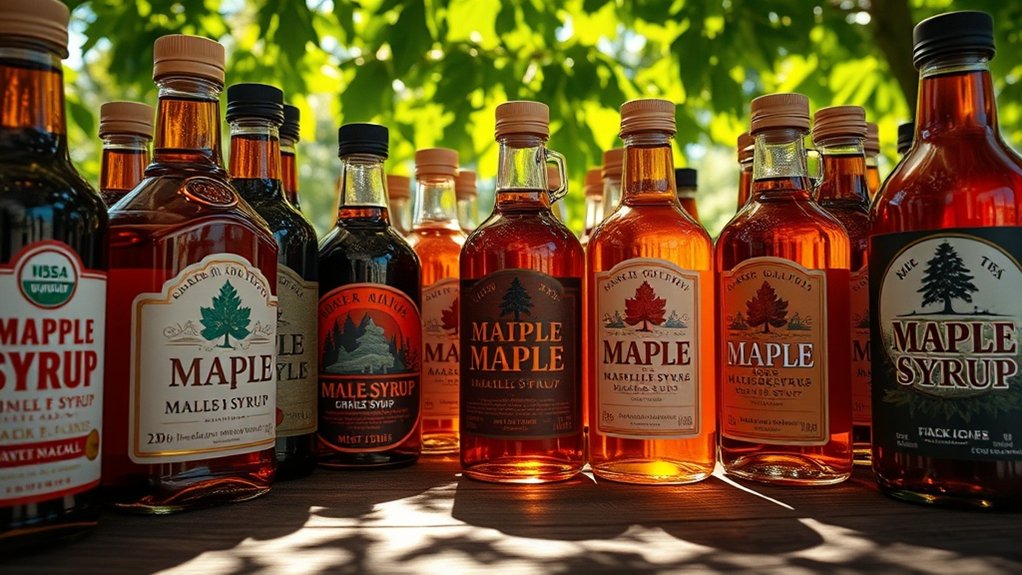
How can you guarantee your maple syrup aligns with vegan dietary requirements? You’ll need to examine labels carefully for “100% pure maple syrup” declarations, which typically exclude animal products.
Look for certifications like MOFGA organic or Pareve with a “U” symbol, confirming adherence to vegan practices.
Research brands that transparently disclose their use of vegetable oils as defoaming agents rather than animal-derived alternatives.
Don’t hesitate to contact manufacturers directly about their specific defoaming agents and production methods. Companies like Sap Hound Maple Company and Maine-iac Maple Farm have established reputations for vegan-friendly processing.
When shopping, prioritize brands that explicitly state their vegan status or provide detailed ingredient information.
This proactive approach guarantees you’re selecting syrup that meets your dietary standards without compromising ethical choices.
Pure Maple Syrup vs. Imitation Syrups: A Vegan Perspective
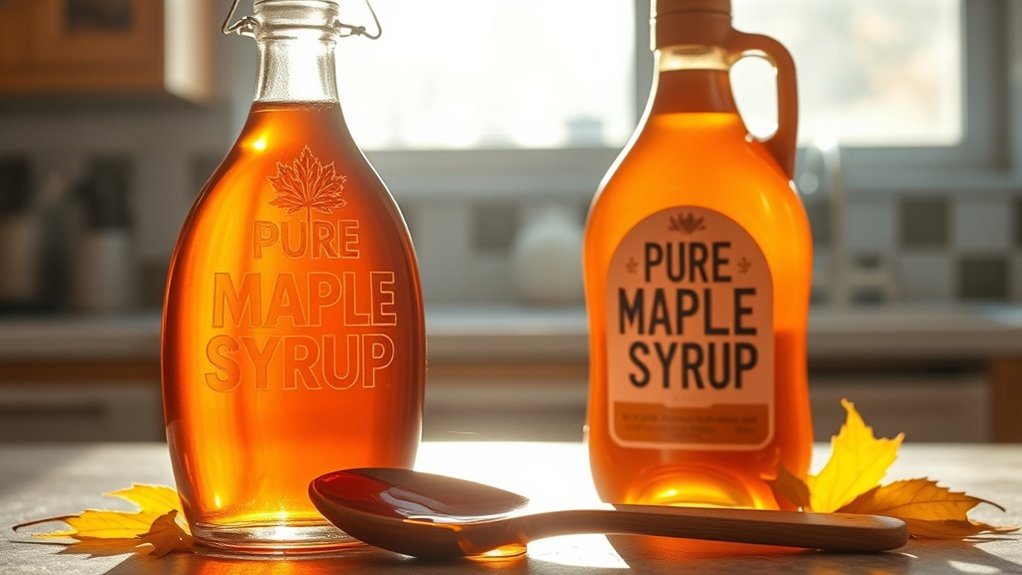
Why settle for imitation when you’re seeking truly vegan maple syrup? Pure maple syrup typically aligns with vegan community standards, while imitation syrups present challenges.
Here’s what you’ll find:
- Pure maple syrup comes directly from maple tree sap, making it naturally plant-based.
- Imitation syrups contain high fructose corn syrup and artificial flavorings that may include non-vegan additives.
- Defoamer concerns exist—some producers use animal fat while others choose vegetable oil.
- Certified organic options offer greater ingredient transparency and stricter production standards.
You’ll realize that pancake syrups often contain zero maple content and potentially include honey or other animal-derived ingredients.
When selecting between options, you’re better served choosing pure maple syrup from reputable sources. Check production methods carefully, as defoaming agents vary between manufacturers.
Sustainable Harvesting and Ethical Considerations for Vegan Consumers

Beyond ingredient concerns, you’ll want to contemplate the environmental and ethical dimensions of maple syrup production. Sustainable harvesting techniques tap trees without compromising their health, enabling continuous sap production while preserving forest ecosystems.
You’ll find many producers employ organic methods that maintain biodiversity and ecological integrity.
For vegan consumers, ethical consumption means selecting brands with transparency about their production processes, particularly regarding defoamer use. You’re supporting sustainable practices when you choose local producers who typically have strong incentives to protect their forest resources.
Consider the environmental impact of your maple syrup choices. Small-scale operations often demonstrate greater commitment to forest health than industrial producers.


